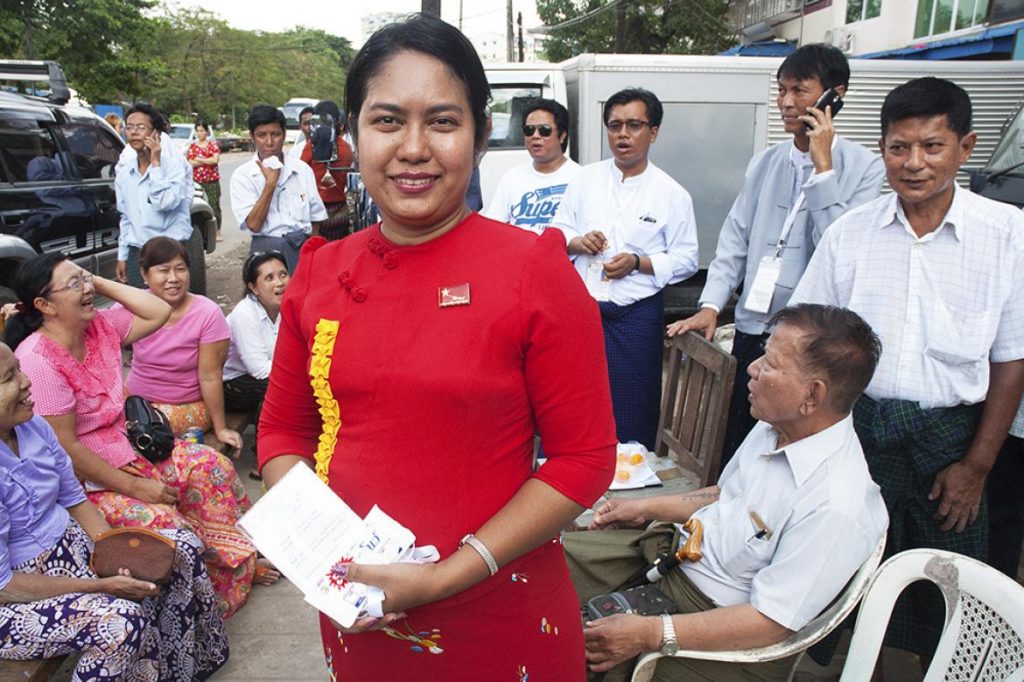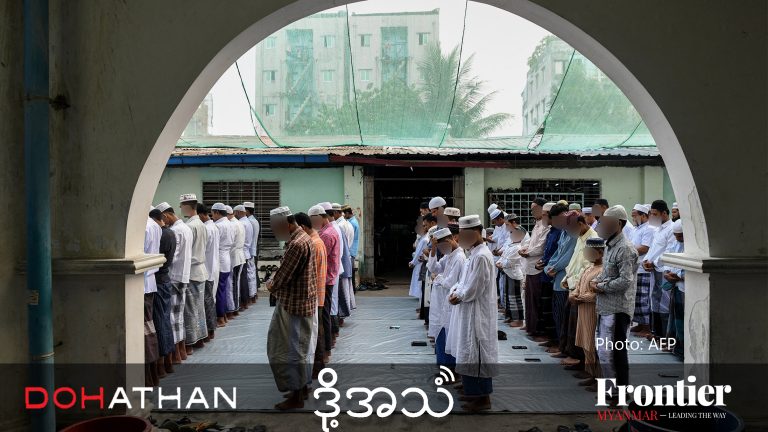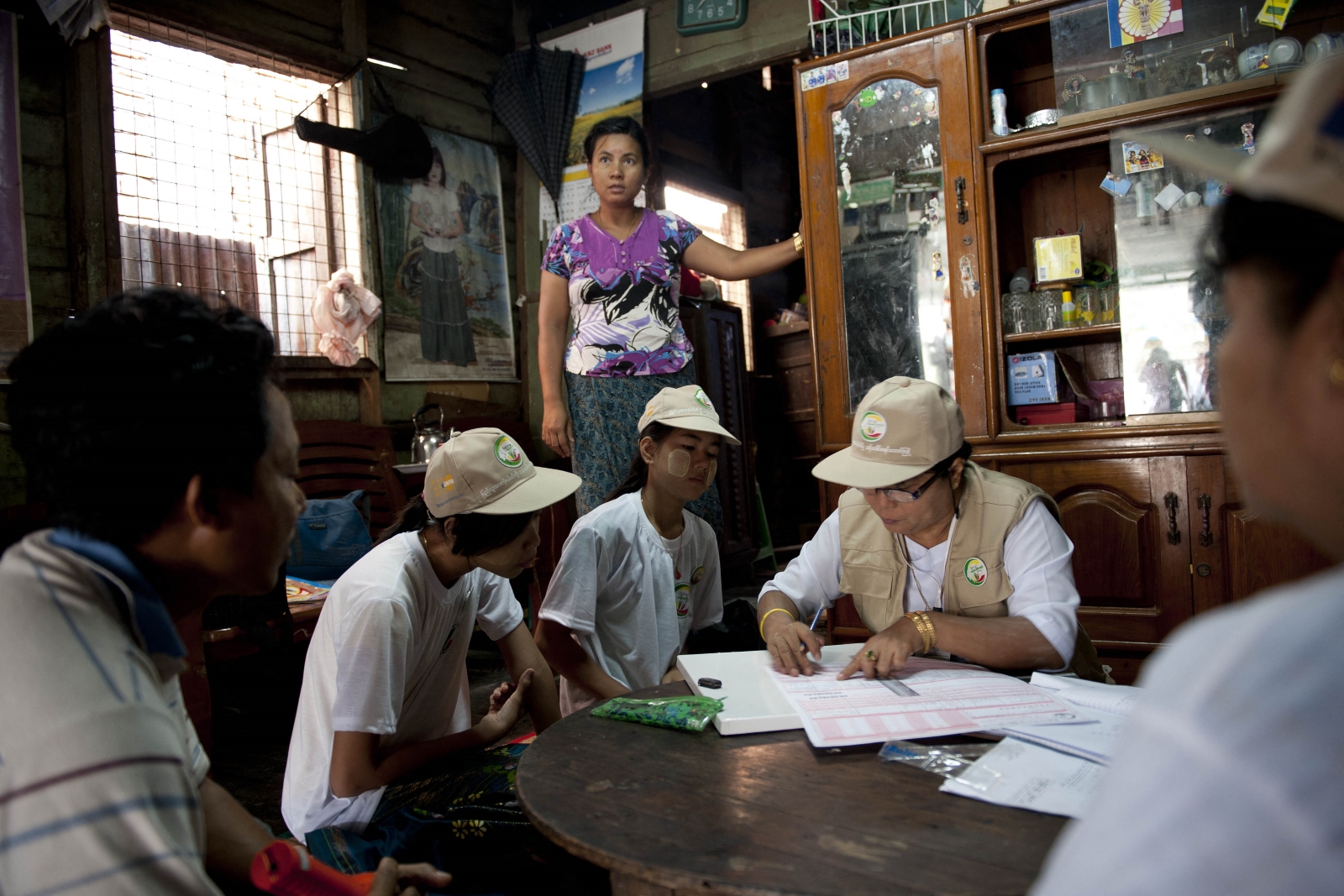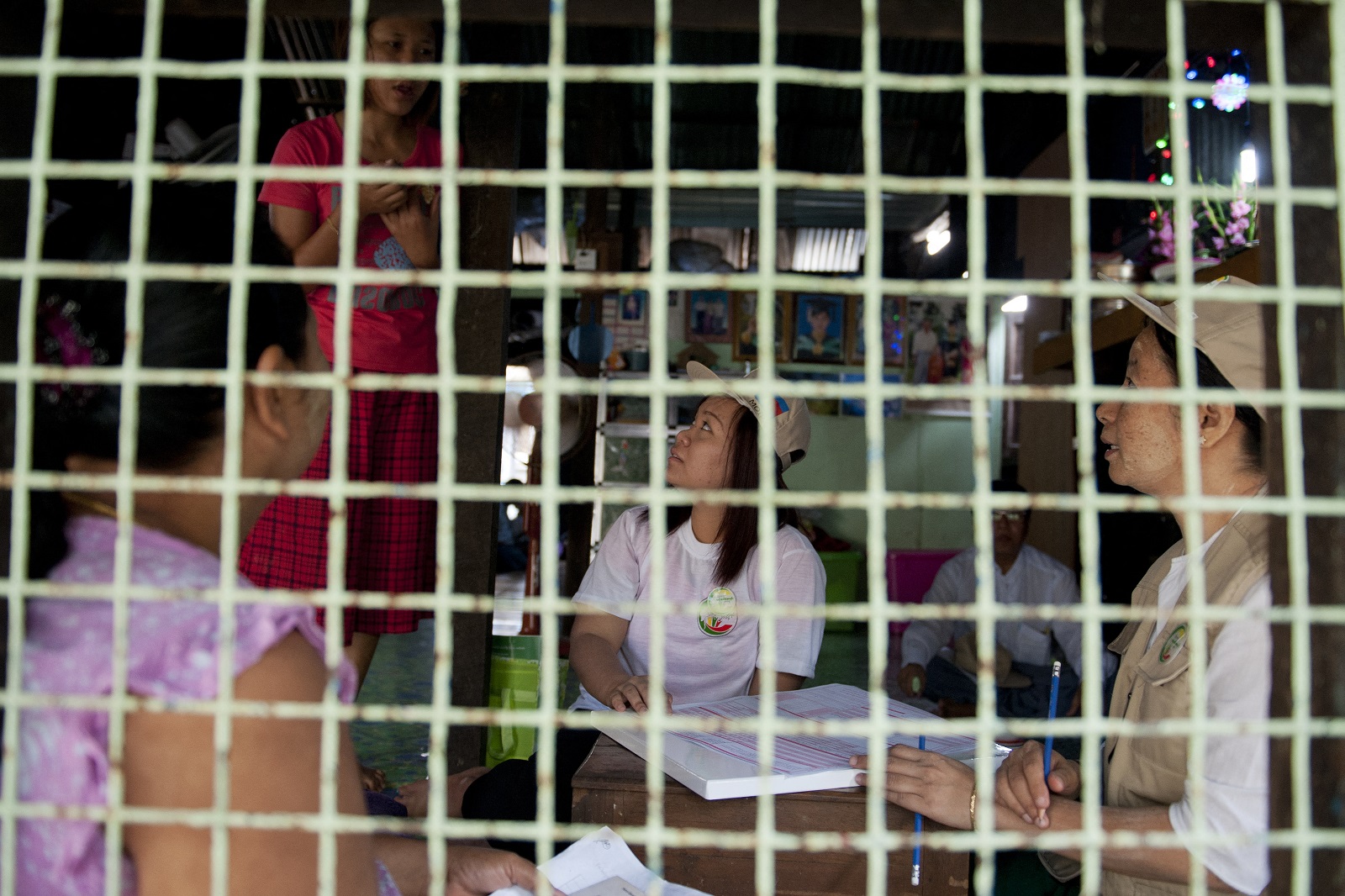YANGON — U Aung Kyaw Htoo, who owns a fabric shop at Mingalar Zay, one of Yangon’s largest markets, would have preferred to vote for a Muslim candidate on Sunday. But there were none on the ballot in Mingalar Taung Nyunt Township where he lives and 82,138 residents were eligible to vote at one of 76 polling stations.
“The Government just doesn’t want Muslims to be part of parliament,” he said.
The National League for Democracy’s Pyithu Hluttaw candidate, Daw Phyu Phyu Thin, was chosen to represent the party after it rejected a Muslim proposed by the NLD’s township branch. Early on Sunday afternoon she was confident of being elected to another term in parliament.
“There’s only two strong parties in Mingalar Thaung Nyunt: the NLD and the USDP,” Daw Phyu Phyu Tin said. “I don’t think USDP candidate Dr U Kyaw Soe is a real competitor. I’m sure I will win the seat. But only if the election is free and fair.”
Daw Phyu Phyu Thin said there were hectic scenes in the polling station where she voted at 6.30am and some ballots were cast in the wrong boxes, but overall she thought the poll was transparent and relatively fair.
“There have been some problems with the voter lists,” she said. “And yesterday and the day before yesterday people have cast their pre-votes. Out of 330 municipal workers who were supposed to cast their advance votes yesterday only 60 voted. I think in total there are approximately 500 advance votes in Mingalar Taung Nyunt. It is not a big problem.”
U Aung Kyaw Htoo said he voted for the NLD despite being disappointed that it did not field any Muslim candidates. “I want change, and I believe an NLD government will be good for the country,” he said.
Ko Min Thu, an executive committee member of the Union Solidarity and Development Party’s Mingalar Taung Nyunt branch, campaigned for Dr Kyaw Soe by handing out flyers highlighting his background as a public servant.
Will it be enough? “It will depend on the people if we will win. If not, we have to accept the people’s choice and follow the rules. The rule of law is important,” said Ko Min Thu.
The fact that the large Islamic community in Mingalar Taung Nyint was unable to vote for a Muslim candidate was, in his opinion, “not a problem”.
“Even when there were riots in Rakhine there were no problems between Muslims and Buddhists in our township,” he said. “Religion is not important. It depends on the capacity of the candidate.”
Nonetheless, the Presidential decree issued on February 11 that resulted in more than one million Muslim white card holders being disenfranchised has had consequences in Mingalar Taung Nyunt.
“In 2010 more than 100,000 people were eligible to vote in the township,” said U Pyi Soe, the secretary of the Mingalar Taung Nyunt election committee. “The number of voters has shrunk to 82,138. I think because the numbers were adjusted after the census and the abolishment of the white cards.”
Support more independent journalism like this. Sign up to be a Frontier member.







